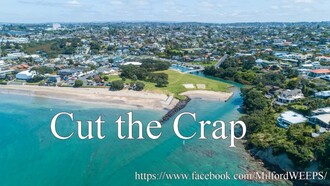-
Increase funding for legal aid in Budget 2020New Zealanders believe in fairness. We believe people should be given a fair go. But as it stands, successive governments’ underfunding of legal aid has allowed access to justice to become a privilege reserved only for the rich. In 2016 the Law Society found that the average charge-out rate for lawyers was a staggering $292.70 per hour plus GST.* If you work a 40 hour week on minimum wage, that’s a week’s pay gone in just two hours! The representation, advice, and support from legal aid lawyers is a crucial bridge to access to justice for the many whānau who are unable to front exorbitant legal fees. It is meant to be a safety net for people who cannot afford a lawyer and can be the difference between having the opportunity to right wrongs and rebuild your life, or ending up in the overcrowded cages we call jail. Legal aid is also one of the only ways people can access Section 27 cultural reports, which examine the reasons why people cause harm or offend in the first place in order to inform sentences that result in less harm and more good in the future. For too long, people in government have neglected legal aid and placed unfair restrictions on who can qualify for help. As a result, more and more people are going into a spiral of debt or having to represent themselves in court without professional legal support. We want to see a significant increase to funding for legal aid in Budget 2020 to make sure justice and legal representation is available to all - not just the few. References and further reading: Access denied: Thousands brave NZ courts without a lawyer due to cost. NZ Herald, 4 November 2018. https://www.nzherald.co.nz/nz/news/article.cfm?c_id=1&objectid=12277484 The New Zealand Legal Services Mapping Project: Finding free and low-cost legal services. Civil Justice Insights Series: University of Otago Legal Issues Centre, 2018. Kayla Stewart and Bridgette Toy-Cronin. https://ourarchive.otago.ac.nz/bitstream/handle/10523/8054/Mapping%20UOLIC%20Report%2023%20May.pdf?sequence=3&isAllowed=y Charge-out rates information released. New Zealand Law Society, 2016. https://www.lawsociety.org.nz/lawtalk/lawtalk-archives/issue-893/charge-out-rates-information-released. *This research focussed on lawyers employed at law firms Legal aid funding limits creating ‘justice gap.’ Stuff. 19 July 2014. http://www.stuff.co.nz/national/10285613/Legal-aid-funding-limits-creating-justice-gap Lawyers duck legal aid work. Stuff. 26 July 2014. http://www.stuff.co.nz/the-press/10312946/Lawyers-duck-legal-aid-work1,265 of 2,000 SignaturesCreated by Team ActionStation

-
New Zealanders Against Citizenship Amendment Act (CAA) 2019India is a land of diversity and pluralism. Of different cultures and religious practices embedded over centuries of existence. India has always welcomed and embraced new people, offering them a home and a space to be free. Multiple invasions and a long imperial rule did not dent her spirit or her soul. Dr Babasaheb Ambedkar reflected this deep feeling when he wrote the Constitution of India that came into force in 1950. It clearly outlines India as a sovereign, socialist, secular republic that will secure for all citizens justice, liberty and equality. Earlier last month, the government in power officially approved the Citizenship Amendment Bill (CAB) now the Citizenship Amendment Act (CAA) The new law could give Indian citizenship to immigrants from three neighbouring countries – unless they are Muslim. The CAA cannot be seen in isolation from the National Register of Citizens (NRC), which the ruling party seeks to implement nationwide. Once excluded from CAA, should any Muslims become excluded from the NRC due to lack of proper documentation, they are condemned to extreme uncertainties and insecurities, thereby making their already de facto secondary-citizen status into a status of de jure non-citizenship or statelessness. In response there have been anti-CAA protests across nine states, including in major cities such as Kolkata, Mumbai, Chennai, Hyderabad and the capital New Delhi, mostly around university campuses. These have turned deadly, with police using brute force, tear gas and lathi charge against peaceful protestors resulting in multiple injuries and deaths. All New Zealanders, Indians of the diaspora and those of Indian origin who believe in India as a secular, democratic republic should stand against this Act, against police brutality and in solidarity with our brothers and sisters in India. Sign this petition and join the resistance against a fascist India. We urgently call on Prime Minister Jacinda Ardern and her government to publicly condemn this human rights violation. https://www.cbsnews.com/news/india-citizenship-bill-muslim-violent-protests-assam-vow-of-court-challenge-today-2019-12-12/816 of 1,000 SignaturesCreated by Shreya G
-
Save our Sands - stop sand mining at Mangawhai Pakiri BeachesPakiri beach, two hours north of Auckland, is a natural treasure. People come to enjoy its glistening white sand, miraculous dunes, precious ecosystems and the rare species that make it their home. It should be protected as a taonga for generations to come. Yet for decades Pakiri has been mined for its white sand. It’s the site of the largest single nearshore sand mining activity in the developed world. Sand mining involves extracting sand from the sea floor. Sand mining literally sucks the life out of our sea bed floor, leaving 16km of suspended sediment plumes in its place. Yet, just as the benthic sea bed community is being appreciated as ever more important. Dredging releases carbon stores ("blue carbon"); it is out of step with these times, just as seabed trawling is being phased out in many places. With less sand making it onshore, it also causes erosion to dunes and foreshores. This sand extraction is causing erosion, destroying shellfish beds, stealing safe nesting spots from endangered birds and ruining surf breaks. Pakiri Beach is home to the Fairy Tern, New Zealand's rarest bird. There is a finite supply of Pakiri Beach’s sand and once it’s gone, it’s gone forever. There are other non-erosionary sources of sand, so it’s not necessary to mine Pakiri Beach. The dredging is by NZ’s oldest marine reserve, with two new Auckland Reserves are at either end of the beach. Can there be a less appropriate place for dredging? We now live in an era of environmental awareness. Single use plastics bags have been banned, we all now think about and mitigate our environmental impact in everything we do. So why in this environmental era, in Green NZ of all places, allow permits to mine sand, in an intensive, primitive way from precious beaches like Pakiri, when there are alternate sustainable sources and so much future climate volatility and uncertainty looms? As COP26 is underway and the world seeks to changes its ways and work with the environment and find new sustainable paradigms, the McCallum’s approach is the following. They specifically commissioned a new dredging vessel which has been delivered and is being used, of double the holding capacity of their other vessels. Now they wish to expand their operations and the volumes as taken from new consents of higher volumes and a 35 year term. The contradiction in terms could not be any starker. This is what we are up against. Save our Sands being Friends of Pakiri Beach, Te Whanau O Pakiri, Tangata Whenua, locals and concerned New Zealanders, with the support of GreenPeace, are taking a stand and we need your help! Join us in saying 'no' to sand mining. Sign and share the page and please submit your opposition to Auckland Council and make a difference. Damon, Nick and the FOPB team. * We are still awaiting a decision on the first consent. It has been delayed because we alone were able to reveal deep seabed trenches caused by the dredging, which hadn’t been revealed by the dredger’s. This has caused the resource consent hearing committee to stipulate further investigation. We are making a difference.6,143 of 7,000 SignaturesCreated by Friends Of Pakiri Beach
-
Keep the Wakatipu Ferry on the waterWe have a very effective commercial ferry service operation on Lake Wakatipu which is well patronised by locals and visitors alike. As a resident of Kelvin Peninsula, I regularly use the service when heading to the centre of Queenstown. However it cannot continue without a similar subsidy to that which the $2 buses get. The service is scheduled to be shut down at the end of February 2020 to the dismay of the local users: https://www.odt.co.nz/regions/queenstown/lake-ferry-service-wind. Once shut down it will be difficult to resume operation. The Queenstown Lakes Region is facing increasing road congestion caused by exponential growth in local and visitor traffic. Queenstown Lakes District Council, the NZ Transport Agency and the Otago Regional Council have done a great job in moving residents to bus services with a subsidised service which as well as getting cars off the roads, has the added benefit of climate change mitigation. Water transport is potentially one of the most efficient and climate friendly means of transport for the Wakatipu basin. No roading infrastructure required and currently existing jetties are utilised. Plus the ferry is a really beautiful way to travel. As with all public transport, the ferry service must be reliable, frequent and reasonably priced to encourage use. We have a local commercial operator providing an excellent service for a year now but it is not cost effective for them. Queenstown Lakes District Council, the NZ Transport Agency and the Otago Regional Council recognise this but are slow in implementing a long term plan. Allowing an existing ferry service to fail through bureaucratic inertia would do the community a huge disservice and set back the momentum for positive change. As Chair of the Kelvin Peninsula Community Association, I urge the ORC to respond swiftly to this public transport need.1,927 of 2,000 SignaturesCreated by David Mayhew
-
Open Letter: Kāinga Ora must stop their dodgy home sensor projectTo: Hon Dr Megan Woods, Minister of Housing Cc: Sir Brian Roche, Chair of the Board, Kāinga Ora Cc: Andrew McKenzie, Chief Executive, Kāinga Ora Cc: John Edwards, Privacy Commissioner Dear Minister Woods, Damp, cold, mouldy homes are a silent killer in New Zealand. Every year, poor housing conditions contribute to illnesses like pneumonia which can be fatal. Everyone in New Zealand should have a home that is warm and dry, especially those whose homes are provided by our government. But nobody should have to sacrifice their privacy in order to have a healthy home. Recently, the government ran a pilot which put sensors into state homes to collect home health information. With the pilot completed, they are now formally rolling out a Smart Homes project to many government-owned homes, which will use sensors to measure temperature, humidity, carbon dioxide emissions and information on power usage. This week, Kāinga Ora will finish taking proposals from potential suppliers of home sensors so they can begin installing sensors in their tenant's homes next year, but we believe urgent changes must be made before this happens. Why do changes need to be made? The sensors provide Kāinga Ora with a lot of very personal information, including: - When someone is at home. - How many people are in the home. - If someone has opened a window. - When your curtains are closed or not. This sensor data is owned by Kāinga Ora. As part of their privacy statement, they have said they may share that data with other government agencies, including the Ministry of Social Development who are responsible for welfare and benefit provisions to many Kāinga Ora tenants. Families do not have easy access to either data collected about them and their house, or the insights gained from it. Given much of this home sensor information relates to a family’s health, but is not available to them to see, we believe this is a breach of the Health Information Privacy Code 1994. In addition, Kāinga Ora have only told tenants what measures they are collecting (temperature, humidity, carbon dioxide levels and power use), not what that data tells them (such as how many people are in the house). When combined with the power imbalance between a government landlord and public housing tenants, families may feel pressured to agree to sensors in their home in order to get their damp, mouldy, cold homes fixed, but without understanding just how much privacy they’re giving up. This situation would not be one of genuine, informed, consent. The combination of a lack of transparency and the ownership and sharing of family’s data with other government agencies creates a huge risk that family’s home sensor data will be used to control how whānau use their own homes, from policing how many visitors are in the house at any time, to cutting benefit payments to solo parents perceived to be in relationships, to evicting whānau for claimed overcrowding. The potential for misuse of this data is so high that it should not be available to landlords and this project should not be collecting it. We demand the following immediate action: This project must be stopped. The current process of seeking vendors to provide sensors must be withdrawn. Kāinga Ora must be directed to create a process for replacing it that fully engages tenants, iwi and relevant experts, with the aim of a principled, ethical and legally-compliant outcome. We seek the following changes to the program as part of any revised process: 1. Tenants must own the data generated by them and about them. 2. The data should be treated as medical data and handled under the Health Information Privacy Code 1994 (the “Code”). The purpose of this project is to improve the health of tenants by monitoring their houses and house use, so this should be classified as health data, and managed under the Code. 3. Tenants must be able to see the same data and insights as Kāinga Ora, without barriers. Currently, tenants have to make a request under the Privacy Act to get their information. This is totally unacceptable and a barrier for many people. 4. Immediately abandon use of carbon dioxide (CO2) sensors which can accurately measure how many people are in a house at any time. 5. Cancel use of power consumption sensors.This is exclusively a measure of tenant behaviour, not housing. 6. A complete reset of principles and community engagement. As it stands, the project does not outline any principles. Instead, it only focuses on outcomes for Kāinga Ora. There is no empathy, understanding or even acknowledgement of the potential issues and concerns for tenants. Furthermore, education and empowerment - which are a major part of the ability to make change - are not mentioned. Kāinga Ora must restart and engage meaningfully and honestly with communities, sharing the implications of data collection, and listening and acting on concerns. 7. Honour Te Tiriti o Waitangi. Kāinga Ora states they want to partner with Māori and iwi, but so far, the project has completely failed to honour Te Tiriti. Whānau have no autonomy over their own data, the technology and potential solutions for this project, and Kāinga Ora have not highlighted any engagement with hapū, iwi or Māori. As a Crown entity, the role of Kāinga Ora is one of a Te Tiriti partner. They must honour this meaningfully. The next phase of this project cannot begin without early engagement with hapū, iwi and Māori. Anything else is against both Te Tiriti o Waitangi principles and the Bill that gives Kāinga Ora its mandate. --- We the undersigned demand Kāinga Ora immediately stop their home sensors project and start again with better ethics, engagement and transparency.914 of 1,000 SignaturesCreated by Whare Hauora

-
Fight for Te Rotorua nui a Kahumatamomoe (Lake Rotorua)* Lake Rotorua is a taonga as are all the waterways connected to it #TAONGAnotTOILET * Many communities and families still source food from the lake * Serious contaminants will still exist in the treated sewage when it is discharged into the stream that flows into the lake * No lake in Rotorua will be safe if this discharge happens * We must leave a legacy of clean water and air for our mokopuna, Rotorua and Aotearoa * Getting the lake the same legal recognition as a person, will make it more difficult for groups to purposely pollute and disrespect it Te Arawa Lakes Trust says no to treated wastewater in Lake Rotorua, NZ Herald, 4 Dec 2018 https://www.nzherald.co.nz/nz/news/article.cfm?c_id=1&objectid=121703314,724 of 5,000 SignaturesCreated by Renee Kiriona
-
Remove BMI test from B4 School ChecksWe all want to live in a country where children are healthy and thriving. The B4 School Check is an opportunity to provide children and families with the best information on their health. However the BMI test (the Body Mass Index is a measurement which combines a person's weight with their height) is just a tool and on its own does not show if someone is healthy. In fact on its own relying on a BMI test can have negative results. By naming children as 'fat', 'overweight' or 'obese' because they are outside of the ‘correct’ measurements gives them the idea early on that they are judged by how they look, and that weight is a measure of their health. According to the BMI formula, a handful of the All Blacks are obese and the rest are overweight. Weight on its own is no measure of health. Worse than that, this language can plant the seeds that lead to disordered thinking around food and exercise, leading to eating disorders in the future. Eating disorders are the number one cause of mental health-related deaths.[2] We should be publicising body neutrality and promoting body positivity, in contrast to a diet obsessed culture. The BMI test is unnecessary for B4 School Checks and misguides children and parents when looking for healthy solutions. Dietician Lucy Carey, from Christchurch says "Instead, (of BMI tests) we should be taking a universal approach where every family, regardless of the size of their child, could have a conversation with the health professional about healthy living." [3] Please sign to ask the Minister of Health, Hon. David Clark, to remove the BMI from the B4 School Check. 1 - 2 - Anorexia nervosa is the third most common chronic disorder affecting adolescent girls, with the highest mortality rate of all psychiatric disorders. https://www.nzeatingdisordersclinic.co.nz/anorexia-nervosa 3 - https://www.nzherald.co.nz/lifestyle/news/article.cfm?c_id=6&objectid=12289228112 of 200 SignaturesCreated by Clare Robinson
-
Cut ties with iFLYTEK - support the UyghursThe situation for the Uyghur people in China is horrific and urgent. Mass ‘re-education camps’ are now holding at least one million Uyghur people in China, which many are now acknowledging as concentration camps. Thousands of people have vanished. Children are being removed from their parents and being placed in re-education schools. Women are the subject of forced sterilisation. Muslim Uyghur people are unable to practice their religion, associate with each other or travel freely. More and more reports of torture and sexual abuse are emerging from the camps. Uyghurs who have fled their homeland are still not free to speak up on what is happening, as China is enforcing a policy of punishing the families of those who do. Words such as ‘concentration camps’ and ‘ethnic cleansing’ should not be used lightly, but it is now widely acknowledged that this is the reality of the strategy being employed by the Chinese Government on the Uyghur people. Even here in New Zealand, we are aware of harassment and intimidation of the small Uyghur community by the Chinese government. Recently released documents obtained from the Chinese Government show what a pivotal role technologies involving data and artificial intelligence are playing in this mass scale repression and ethnic and religious forced assimilation. That iFlytek is involved in supplying technology to the police of the Xinjiang region, where the Uyghur people live, is not speculation but rather well evidenced and documented. Mass surveillance technology has assisted the Government to identify tens of thousands of people recommended for interrogation or detention in just one week. Massey signed a funding agreement with iFlytek in 2017, a chinese artificial intelligence company worth around $15 billion. The arrangement involves the company funding the salary of an academic who splits their time working at Massey and at iFlytek. The New Zealand Government has joined more than 20 countries in an official letter condemning the Chinese Government's treatment of the Uyghur people. Human Rights Watch has published an extensive reports exposing the complicity of iFlytek in the violence against the Uyghurs. The US has blacklisted the company. MBIE alerted Massey to the blacklisting “so it could consider any implications for itself”, but Massey has not responded. Publicly funded institutions like Massey University have no place working in close collaboration, and sharing new technologies and research, with a company involved in these atrocities. Massey ending this funding agreement would send a signal that the world is watching what is happening to the Uyghur people and will not stand by with complicity. More information: Masseys ties with iFlytek: https://www.newsroom.co.nz/2019/11/26/913921/massey-working-with-chinese-firm-blacklisted-over-human-rights# A quick guide on the situation: https://aucklandpeaceaction.wordpress.com/2019/11/28/hard-to-imagine-mass-repression-of-uyghur-people-by-chinese-government/ More info on the camps and mass surveillance: https://www.aljazeera.com/news/2019/11/secret-papers-reveal-workings-chinas-xinjiang-detention-camps-191125004212642.html Human Rights Watch report on iFlytek: https://www.hrw.org/news/2017/10/22/china-voice-biometric-collection-threatens-privacy328 of 400 SignaturesCreated by Auckland Peace Action
-
Save NZ Review of Books Pukapuka AotearoaA creative culture needs critics and forums for discussion about art. NZ Review of Books reviews books published in New Zealand, it is solely dedicated to NZ books and is the only long form print review channel left in NZ. They have been running for nearly 30 years, and their editors estimate they've reviewed 15,000 NZ books in that time. Without funding this journal cannot survive. Without NZ Review of Books, writers, publishers, readers, librarians, booksellers, academics and students lose a vital part of the conversation about NZ literature. We wish to communicate our dismay at the decision Creative New Zealand have made to stop funding the journal New Zealand Review of Books Pukapuka Aotearoa. We ask that Creative New Zealand reconsider this decision. We believe that by deciding not to fund the journal Creative New Zealand is doing harm to the literary arts ecosystem in Aotearoa by removing one of the load-bearing pillars of critical discussion of books and ideas across multiple disciplines. As writers, readers, librarians, booksellers, publishers, academics, students and promoters of New Zealand writing, we rely on journals such as this to inform how we buy, lend, read and talk about our own literature. Our understanding is that Creative New Zealand’s work is to encourage, promote and support the arts in New Zealand for the benefit of all New Zealanders. We believe the decision to stop funding NZ Review of Books undermines this work. It also sends a message that open discussion, debate and critical exploration of the literary arts and the world of ideas are not valued. We sign this statement as a protest against the withdrawn funding and to ask that Creative New Zealand will reinstate it so that NZ Review of Books can continue to publish.1,035 of 2,000 SignaturesCreated by Kirsten McDougall
-
Open Letter: Welfare Relationship Policies Must ChangeFor the reasons above, the following organisations have signed the open letter: ✏ Auckland Action Against Poverty ✏ Child Poverty Action Group ✏ ActionStation ✏ The Council of Trade Unions New Zealand ✏ First Union ✏ Unions Auckland ✏ Unite Union ✏ Auckland's Women's Centre ✏ The Aunties ✏ Disabled Persons Assembly ✏ CCS Disability Action ✏ Te Kupenga Whakaoti Mahi Patunga: National Network of Family Violence Services ✏ Mental Health Foundation ✏ FinCap ✏ HELP Sexual Abuse Wellington ✏ Barnardos ✏ Pax Christi1,708 of 2,000 SignaturesCreated by Team ActionStation

-
Aviation Eco-Tax to offset climate impact of flyingAlthough aviation only accounts for about four percent of all warming activity, it is growing at a rate of five percent each year. This means it is on track to double in 15 years as people in poorer countries become accustomed to the kind of lifestyles westerners have been enjoying for decades. People living in New Zealand are among the worst offenders for greenhouse gas emissions from aviation. There are no currently-viable technologies that can enable people to fly without adversely affecting the climate. In New Zealand the cost of taking a bus or train is very high relative to flying. Flying is so cheap there is no incentive to travel by means which emit less CO2. In Sweden the amount added is very moderate, ranging from $10 to around $60. If you can afford to buy a ticket, you can also afford to pay the tax. Despite the fact that the amount is so small, the effect in Sweden has been very positive, with a decline in flight passengers and rapid growth in train ridership. There has been a significant shift in attitudes and these are outcomes we need in New Zealand as well. Each of you holds a portfolio which will either be impacted by climate de-stabilisation, or is directly linked to taxing aviation. Please bring in an Aviation Tax now.130 of 200 SignaturesCreated by Anguli Julie
-
Fix Wairau Estuary & Milford BeachNorth Shore beaches are the pride of Auckland and are of world renown. Wairau Estuary and Milford Beach are a regional resource. Large numbers of visitors from South and West Auckland enjoy them throughout summer. Yet Wairau Estuary is one of the most heavily contaminated waterways in Auckland. The contamination includes silt (that chokes seafloor life), human faecal contamination, heavy metals and hydrocarbons. Wairau Outlet has a permanent no swim warning. The only one north of the Harbour Bridge. There is human sewage in the Wairau Estuary. This contaminates Milford Beach. Heavy metals and hydrocarbons in the Estuary are carried with silt onto Milford and Castor Bay Beaches. High levels of Zinc, Lead, Copper, Cadmium, Chromium and Arsenic are present. Polyaromatic hydrocarbons cause cancer and are found in the sediment of Milford Beach in moderately elevated (amber zone) quantities. There is a total ban on gathering shellfish off the Wairau Outlet, because they contain human faecal matter. Council puts a red no swim advisory on any beach when 2 in every 100 swimmers are likely to get sick. Swimming illness is usually mild; it takes the form of a “cold”, ear infection or sinus infection. Or a “tummy bug”, with diarrhoea or vomiting. Most people view swimming as healthy and mistakenly blame other factors for their illness. Children are at highest risk from swimming, because they play in the shallows where the faecal bugs concentrate. The Wairau Estuary is special to Milford & Castor Bay. There is nothing similar on other North Shore beaches. It should be a jewel in the crown; a place that people & wildlife seek out rather than avoid because it is stinky & toxic. In addition to its own unique features, it can be a connection between Lake Pupuke, Sylvan Park, Milford & Castor Bay Beach. Sign our petition for a cleaner, safer Milford Beach and Wairau Estuary.1,239 of 2,000 SignaturesCreated by Guy Armstrong

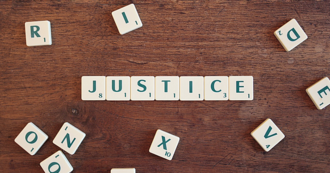.png)

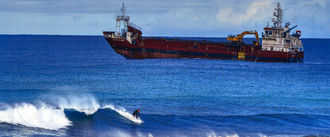
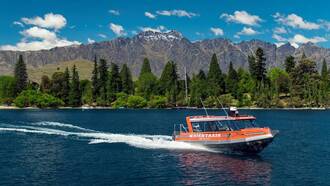





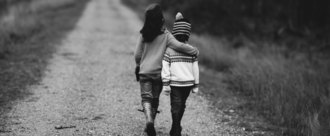.png)

